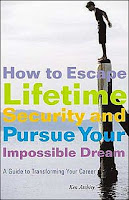
As a literary manager, Dr. Ken Atchity has launched many illustrious careers for novelists, writers of nonfiction and screenwriters.

He’s also produced 28 films and authored 14 books, including “A Writer’s Time: Making Time to Write” and “Writing Treatments That Sell.”
With credits like these and over 40 years experience in publishing, it’s safe to say that Ken knows the business.
This is precisely why I wanted to speak with him about the radical changes in the publishing environment and what it means to today’s writers.
Here’s the interview:
There’s been drastic change in the publishing world over the last several years. What does this mean for today’s aspiring novelists?
It means that today’s novelists are living on a new frontier, and are free to seize opportunity where they find it—and take their fate into their own hands. They are no longer enslaved by a publishing paradigm that never made good business sense. In short, go Internet, young novelist!
What are your thoughts on novelists self-publishing their work in e-book form?
That is not only the way of the future, it’s the way of the present! It’s the paradigm that’s already working for hundreds of writers. Soon it will work for thousands. Be the next one on your block to publish an ebook.
Is there still a stigma tied to self-publishing? And, if so, should writers care?
Not in the least, as long as it’s done professionally with the highest artistic standards and commercial intelligence.
What kind of sales would an author have to demonstrate in order to gain interest from a traditional publishing house?
Once you’re north of 10,000 sales or so, you have a chance of the traditional publishers taking you seriously because you’ve proven there IS a market for your book.
If an independent author is making healthy sales on his own, what reasons would he have to sign with a traditional publisher?
That’s really the question. If money is your goal, you’re making more by far on the esales than you would make from a traditional publisher at that point.
If fame, then maybe you consider switching to the traditional publisher so you can say you were “published by W. W. Norton.” But you will lose control over your book if you do that.
Basically, the only reason that makes sense for going traditional at that point is the kind of irresistible advance Amanda Hocking got from St. Martin’s–$2 million!
At what point (if any), would you recommend that a new novelist who has published their book in electronic format consider publishing in paper- or hardback?
This is primarily a question of whether the new novelist has access to physical audiences that will buy her book. If he does, then go to Print on Demand (P.O.D.) and order enough books for each event you attend. Plus, you need “hard copies” to sign!
If self publishing, what are some of the tasks a writer should perform before launching their books?
(1) Make sure your book is professionally edited. Most self-published books are not, and readers get angry and stop buying them.
(2) Hire a professional designer for the cover—one who’s worked for the traditional publishing houses.
(3) Make sure you have a marketing plan, no matter how minimal—and implement it every single day. Hire a web publicist who knows what he’s doing—or a strategic career coach like myself (www.storymerchant.com).
Where do you think most writers go wrong when self-publishing their books?
They do it through organizations that add unnecessary expense to the writer’s investment instead of doing it “direct” with Kindle, I-books, Lightning Source, etc.
Now that anyone and everyone can publish themselves (& often do), what can an author with a quality product do to stand out?
Publicity and marketing. The more inventive you are, the better. That’s why it’s a new frontier—the prize goes to the most creative.
Thanks for your time, Ken! Informative interview. 
Thanks, Jen. Keep up the good work!
To find out more about Dr. Ken Atchity, you can find him at aeionline.com and storymerchant.com.
Did you enjoy this interview? If so, share it with your friends, using one of the buttons below! You can also sign up for our free Weekly Update. You’ll receive more interviews like these as well as several of articles on the craft and business of writing!
Interview by Jennifer Minar-Jaynes. Jennifer Minar-Jaynes is a Los Angeles-based freelance writer and the editor-in-chief of www.WritersBreak.com.






